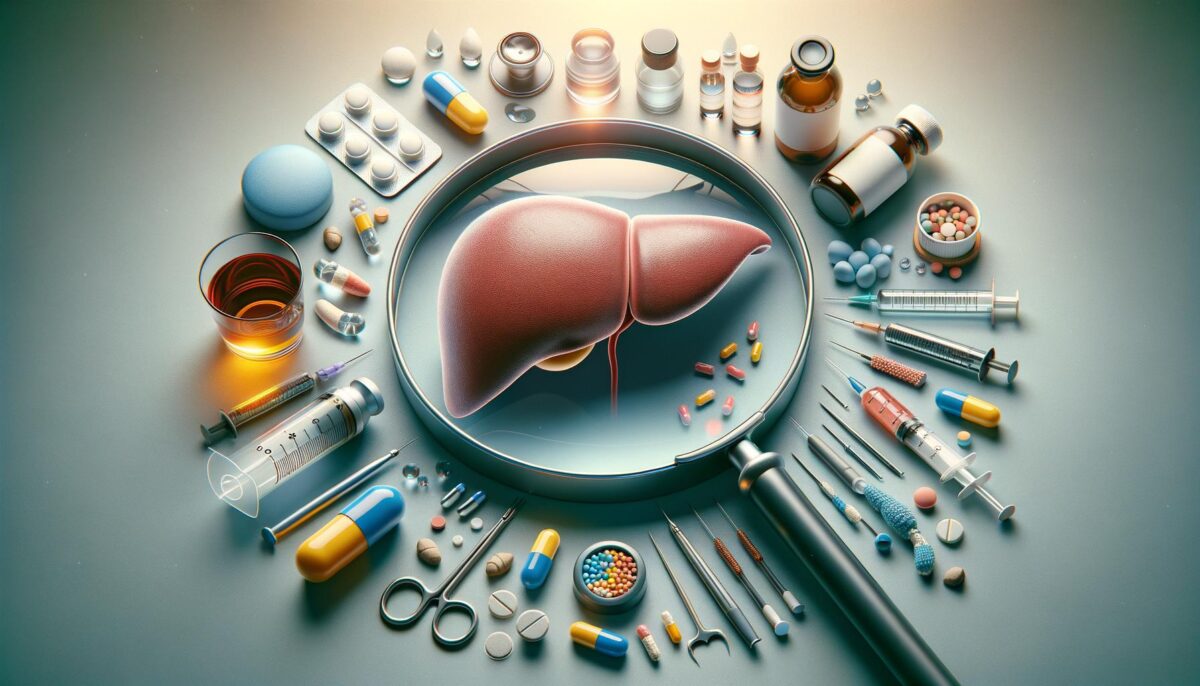Understanding Hepatitis
Hepatitis is an inflammation of the liver commonly caused by viral infection, though it can also result from toxins, certain medications, and autoimmune diseases. There are several types, with Hepatitis A, B, and C being the most prevalent. Each type of hepatitis presents unique challenges and symptoms, with Hepatitis C particularly garnering attention due to its chronic nature and potential for long-term liver damage.
Diagnostic Methods for Hepatitis
Proper diagnosis is crucial in managing hepatitis, and several tests are used to identify the type and severity of the infection. Blood tests are the first step, revealing liver enzyme levels that signal inflammation or damage. Furthermore, specific tests can detect the hepatitis virus’s genetic material or antibodies, providing a clear diagnosis.
- Liver Function Tests (LFTs): Assess liver health and detect abnormalities.
- Viral Load Test: Determines the amount of virus in the blood.
- Genotype Test: Identifies the strain of Hepatitis C for targeted treatment.
After diagnosis, healthcare professionals can devise a personalized treatment strategy suitable to the patient’s condition.
Available Treatment Options
Treatment for hepatitis varies significantly with each type. Hepatitis A typically requires no specific treatment as it is often short-lived. For Hepatitis B, antiviral drugs are generally prescribed, which can reduce symptoms and lower the risk of liver damage. Hepatitis C treatment has seen substantial advancements, with Direct-Acting Antivirals (DAAs) now offering a highly effective option.
- Direct-Acting Antivirals (DAAs): Modern approach for Hepatitis C with excellent outcomes.
- Interferon and Ribavirin: Previous standard treatment now less commonly used.
While treatment is crucial, understanding different aspects like ‘What Does Hepatitis C Rash Look Like’ is also beneficial for comprehensive care and self-monitoring.
Lifestyle and Support During Treatment
The treatment for hepatitis often requires lifestyle adjustments to support liver health and enhance the treatment efficacy. Patients are encouraged to:
- Adopt a balanced diet: Rich in fruits, vegetables, and whole grains.
- Avoid alcohol: Critical to prevent further liver damage.
- Exercise regularly: Helps in maintaining overall well-being.
- Stay Informed: Knowing what symptoms like ‘What Does Hepatitis C Rash Look Like’ can help in timely communication with healthcare professionals.
Joining support groups and consulting with specialists can also provide emotional and social support during the treatment journey.
Future Directions in Hepatitis Treatment
The future of hepatitis treatment looks promising with ongoing research and trials that aim to improve medication efficacy and reduce side effects. Innovative therapies and vaccines are continually being developed, offering hope for those affected by this condition. With a global effort to improve awareness and access to medical care, the burden of hepatitis can be significantly reduced, paving the way for healthier lives globally.
Conclusion
Addressing hepatitis requires a comprehensive understanding of the condition, timely diagnosis, and effective treatment planning. As advancements in medical science continue to evolve, patients can look forward to improved outcomes and quality of life. Staying informed and proactive is crucial for managing and overcoming the challenges of hepatitis.
